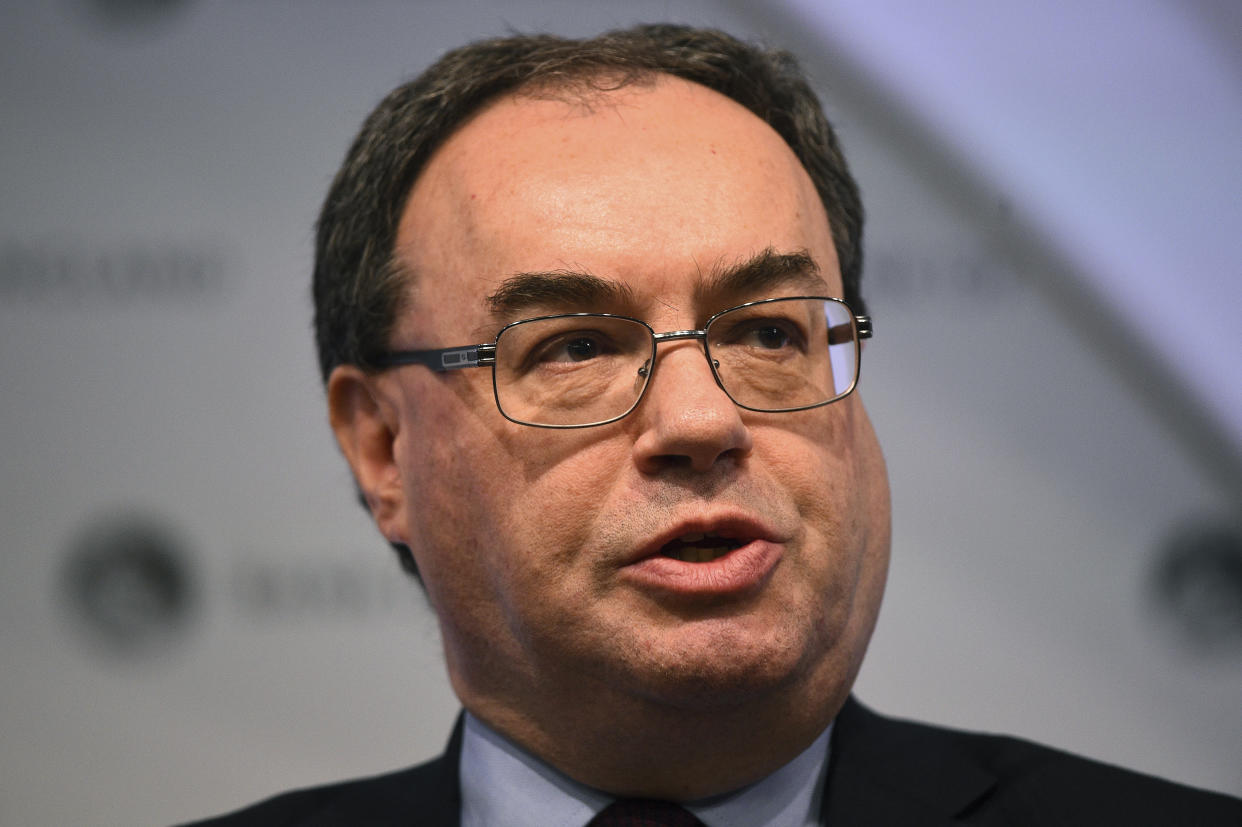Andrew Bailey defends record in 'hellishly tough' FCA role

Incoming Bank of England governor Andrew Bailey has defended his time in charge of Britain’s top financial watchdog.
Bailey was questioned by MPs on Wednesday about his record in charge of the Financial Conduct Authority (FCA), which he has run since 2016. The grilling came during a confirmation hearing in front of the Treasury Select Committee, ahead of Bailey taking the Bank of England top job on 16 March.
Committee member and Conservative party MP Steve Baker said the FCA had “lurched from crisis to crisis” under Bailey’s leadership.
He cited controversy around the treatment of small businesses by Royal Bank of Scotland’s Global Restructuring Group, the collapse of mini-bond firm London Capital and Finance, the collapse of Premier FX, and the collapse of Woodford Investment Management last year. In each case, the FCA has been accused of acting too slowly or in a limited fashion.
Read more: Watchdog's full investigation into 'highly damaging' RBS SME scandal published
“Things have happened that we wished hadn’t happened,” Bailey told the committee.
He said Baker had “lumped together things of different vintages” and some of the issues on his watch, such as the RBS scandal, dated back to before he joined the FCA.
“There was… quite a difficult legacy in there of stuff that’s come out,” Bailey said.

Other problems arose from a rule change that brought consumer credit companies under the remit of the FCA, Bailey said.
“Some of those issues do arise from what I call the issues around the consumer credit sector that we inherited,” he told MPs. “We had to get our hands around how we deal with 59,000 firms, nearly all of whom are small firms. We had a huge task on our hands.”
Read more: Hundreds of investors in bust £237m bond scheme miss compensation
The outgoing FCA chief pushed back on the idea that the regulator was asleep at the wheel, pointing out that the FCA put many payday lenders out of business.
“The idea that we’ve been slow cautious and not done much is not how it looks from within the institution,” Bailey said.

Rushanara Ali, also on the committee and a Labour MP, said the FCA was not “feared by those people who are bad actors and so they frankly took the biscuit” under Bailey’s stewardship.
Bailey pointed to a rise in enforcement action on insider trading cases and said 89 are currently open.
However, Bailey admitted that fraudsters “innovate around us.” He highlighted the issue of mini-bond scams that have defrauded over £1bn ($1.3bn) from savers.
“Once we crackdown on people sticking direct ads for financial services up, they mutate into what we call ‘introducers’ who are outside the [regulatory] perimeter,” Bailey said. “Funny that, that’s not a coincidence.”
Yahoo Finance UK last year reported on the issue of ads for mini-bond scams being targeted at savers. At the time, Bailey told Yahoo Finance UK that Google was not doing enough to tackle the issue.
Read more: Savers targeted with ads on Google for 'bonds' that put all their money at risk
The FCA banned mini-bond adverts in December 2019 but adverts continue to appear online. The watchdog has been criticised by campaigners as ineffective as a result.
“It feels from our end as if we are frankly playing whack a mole on this front,” Bailey said. “We’ve been in discussions with Google for some amount of time now about their responsibilities.”
Bailey revealed that the FCA is even using taxpayer funds to place its own ads on Google alongside scams.
“We pay for this, to actually directly attack other people’s ads,” he said. “You’ll get an ad for the FCA coming up saying: ‘don’t buy this unless you’re prepared to lose all your money.’ It’s a funny world to end up in, I have to say.”
Read more: Retired doctor who lost £50,000 on risky bonds calls for rule change
The FCA was set up in 2013 to oversee finance in the UK. It has a mandate to both protect consumers and ensure there is adequate competition in the market.
Reflecting on his time in charge, Bailey said it had been “hellishly tough at times.”
“It isn’t easy, I have to be honest. It is a very tough job. But it is a fascinating organisation.”
Bailey’s comments came during a three-hour question and answer session in parliament. He was also questioned on issues such as Brexit, negative interest rates, cryptocurrencies, and the economic impact of coronavirus.

